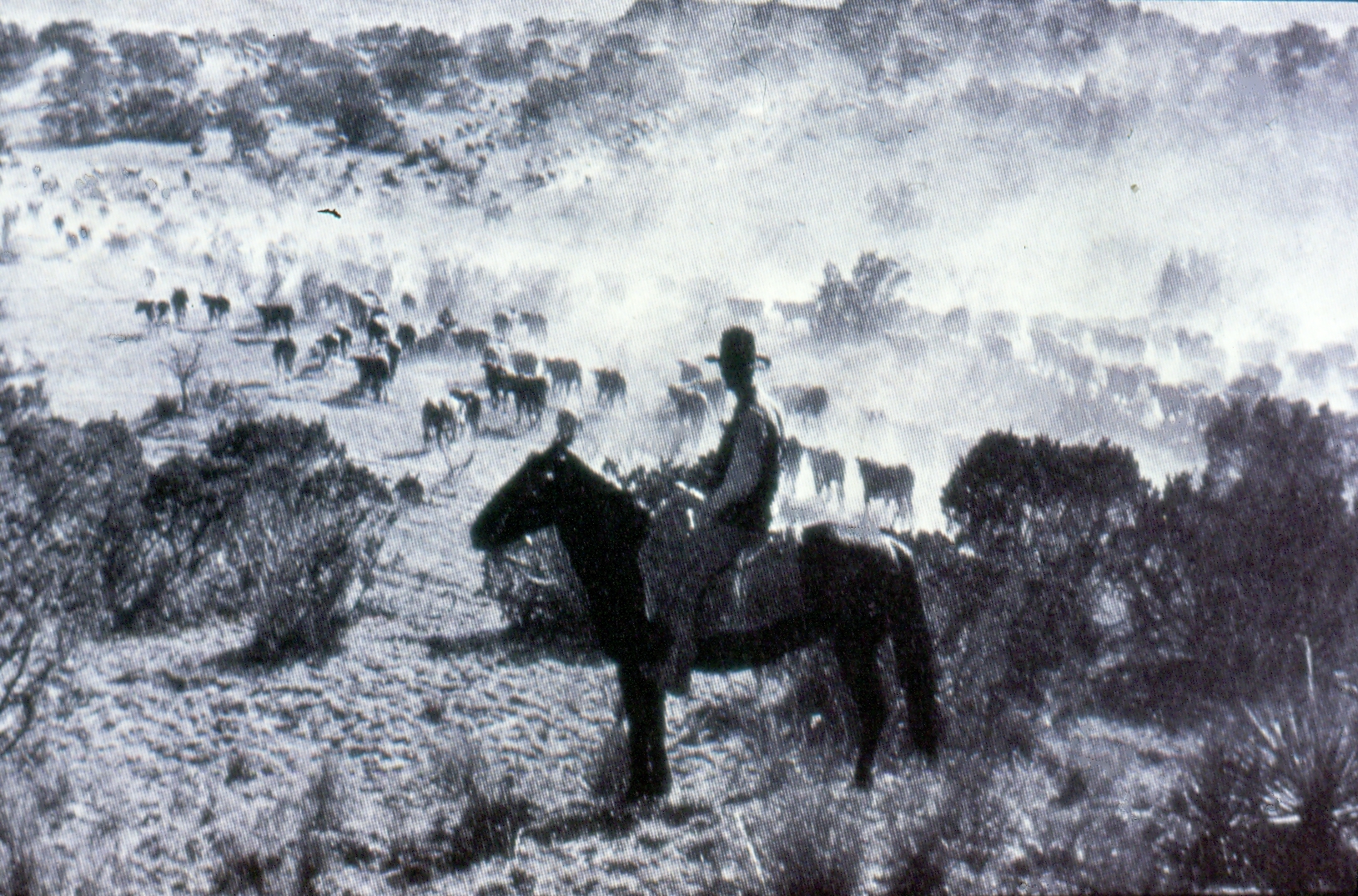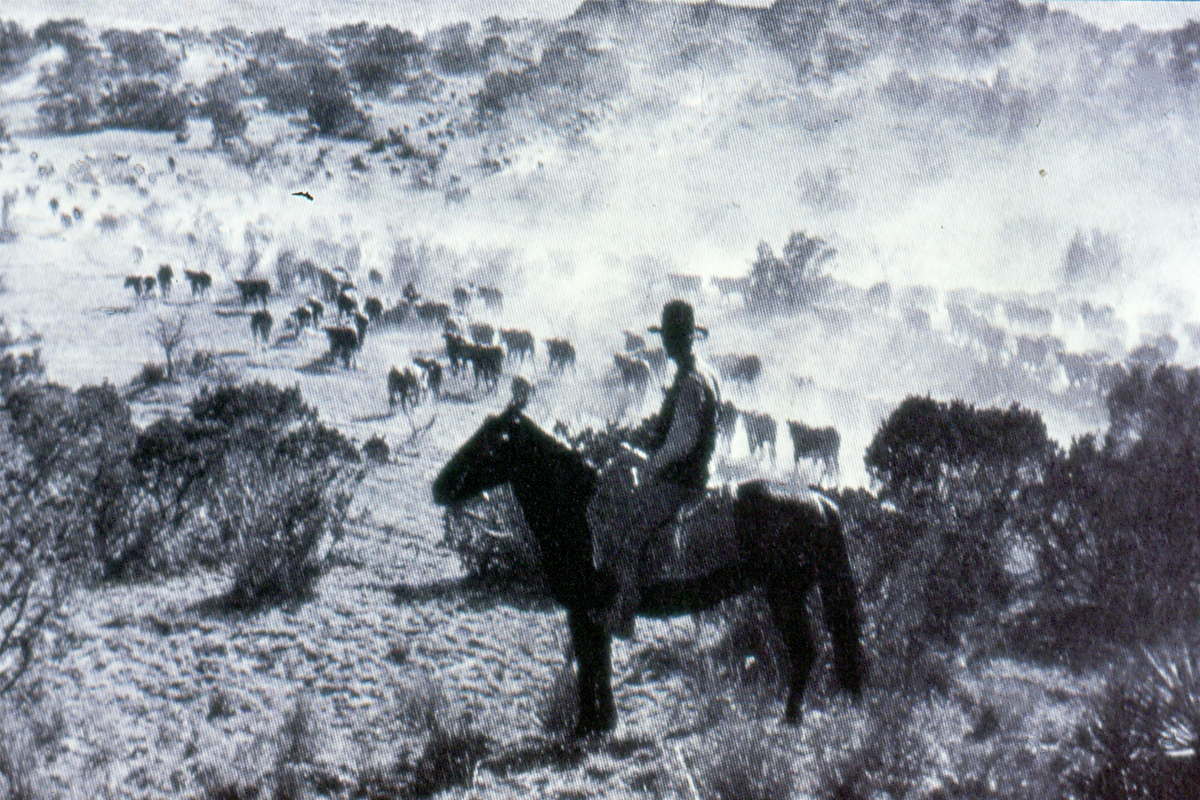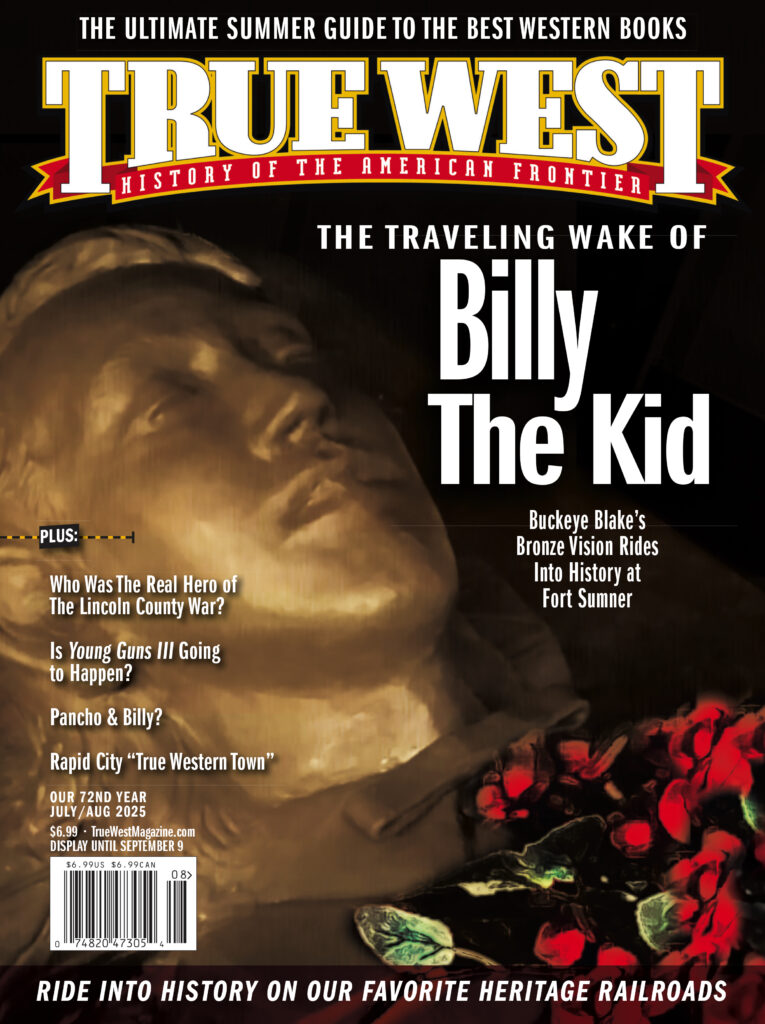
The wrangler on a trail drive was usually the youngest and least experienced of the hands, but his job was a serious one. He took care of the remuda. He was responsible for the horses that kept the drovers mounted. On the Long Drive, a wrangler was almost as important as the chuckwagon cook.
A good one never close-herded his remuda for horses naturally scatter out while grazing and it was important that they were well-fed. Each cowboy had from six to ten horses for his string and he rotated them regularly. It was important the animals over the entire six to eight weeks on the trail were healthy and strong. He had to know every horse in the remuda, some sixty to a hundred head.
In the morning, he checked the remuda to see if any had strayed during the night. After the horses were gathered, there were no pens, so the drovers made a circle with ropes. When a horse was being broken, they were trained to respect a single strand of rope. A big remuda would stay inside this temporary fence. One drover, preferably one who was good with a Houlihan, would rope out the horses, each cowhand calling out the name or description of the mount he wanted. A Houlihan was a fast, backhanded loop used by cowboys when they wanted to catch a horse in a crowded corral without exciting the other horses.
Meanwhile, if three or four had strayed during the night the wrangler would leave the rest of the remuda grazing while he rode out to hunt for any horses that had strayed during the night. He might have to cut for a sign or look for a trail they had made. He was expected to have every horse accounted for at noon camp a few miles up the trail for a change of mounts.
Like the chuckwagon cook, the wrangler was apart from the drovers. The big difference is, next to the boss the cook was the highest paid and the wrangler was at the bottom of the pay scale.






